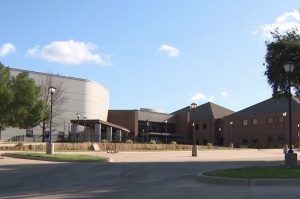Democrat NC gov. vetoes bills banning sex-change surgeries for kids, boys competing in girls' sports

Democrat North Carolina Gov. Roy Cooper has vetoed legislation that would have banned surgeons from performing body mutilating sex-change surgeries for youth suffering from gender dysphoria and a second bill banning boys from competing in girls' athletic competitions.
Cooper announced Wednesday that he vetoed House Bill 574, also known as the “Fairness in Women’s Sports Act,” and House Bill 808, also called “An Act to Prohibit Gender Transition Procedures for Minors.”
“Republicans are serving up a triple threat of political culture wars using government to invade the rights and responsibilities of parents and doctors, hurting vulnerable children and damaging our state’s reputation and economy like they did with the harmful bathroom bill,” Cooper argued.
“Instead of scheming for the next election, Republicans should get to work investing in our public schools and teachers, lowering the cost of living and creating more stability for middle class families.”
Cooper also vetoed Senate Bill 49, also known as the Parents' Bill of Rights, comparing it to a Florida law passed last year prohibiting elementary school teachers from discussing sexual orientation and gender identity with their students.
“Parents are the most essential educators for their children and their involvement must be encouraged, but this bill will scare teachers into silence by injecting fear and uncertainty into classrooms,” Cooper said. “This ‘Don’t Say Gay’ bill also hampers the important and sometimes lifesaving role of educators as trusted advisers when students have nowhere else to turn.”
The North Carolina Family Policy Council denounced the vetoes, stating that while they were not surprising, it was "still discouraging to see our governor stand against these protections for parents, children, and families in North Carolina."
The Council also took issue with Cooper drawing a parallel to the state's 2016 bathroom bill, calling the comparison "unfounded," adding, "North Carolina’s reputation and economy continued to thrive, before, during, and after the height of" House Bill 2.
"These bills are beneficial for everyone involved, and we are hopeful that the General Assembly will promptly override Governor Cooper’s vetoes," stated the Council.
The vetoes are subject to a possible challenge from the Republican-controlled state Legislature, which recently overturned six of Cooper’s vetoes in a single day.
In May, the GOP-controlled General Assembly voted to override Cooper’s veto on a bill that banned most abortions after 12 weeks into a pregnancy, with exemptions including rape, incest and medical emergencies.
In recent months, several states have moved to pass laws prohibiting male athletes from competing on women-only sports teams and to enact bans on prescribing puberty blockers and opposite-sex hormones that can cause chemical castration and lead to sterility.
Last month, Texas passed a law banning body-disfiguring sex-change surgeries such as elective mastectomies for girls and surgical castration for boys in an attempt to provide so-called gender-affirming care for your expressing confusion about their birth sex. The law will go into effect in September.
States with similar laws include: Alabama, Arizona, Arkansas, Florida, Idaho, Iowa, Indiana, Kentucky, Mississippi, Montana, Nebraska, North Dakota, Oklahoma, South Dakota, Tennessee and Utah.
Such laws, however, have also faced legal challenges, with a judge striking down Arkansas’ Act 626, also known as the Save Adolescents From Experimentation Act, last month.
“If Act 626 takes effect, adolescents whose parents and doctors agree that gender-affirming medical care is appropriate treatment for their gender dysphoria will be unable to receive that care in their home state and unable to get referrals from their doctors to receive care in other states. This will cause irreparable harm to the Plaintiff adolescents, Plaintiff parents and Plaintiff doctor,” ruled U.S. District Judge James M. Moody Jr., an Obama appointee.
Arkansas plans to appeal the decision.





























